- Home
- Jane Arbor
Consulting Surgeon Page 7
Consulting Surgeon Read online
Page 7
“There is no question of that.”
“All right. But that doesn’t help me, with the endless prospect of having memories of Foster either thrust at me or probed from me. I don’t want to have to go on remembering Foster for ever. I want to be allowed to forget.”
Pitying her, Ursula said gently: “I think I understand. You didn’t love him less than his mother did, though you mourn him differently. But don’t you think that, with tolerance for her side, you could bring her in time to appreciate that? Or couldn’t Mr. Lingard try to express it for you?”
“Matthew doesn’t understand either. He keeps on asking questions—on and on and on. As if anyone could expect me to remember every detail of those last awful days.” Averil set two fingers between her eyebrows, dragging the white skin upward to the hairline. She added cruelly: “I suppose if I were half as perfect as he seems to consider you are, I’d have had the time, place and condition of everything that happened set out for his inspection on a chart! Because charts and red tape and officialdom are your specialty, aren’t they? You nurses fairly thrive on them!”
Ursula began in hot protest: “That’s hardly fair!”
But Averil, lashed by frustration, was already halfway to the door. Once there, she turned, her hands spread dramatically upon its panels.
“All right,” she said again. “You’ll go, I know, completely disregarding Lucy’s need of you. One day you may be sorry that you didn’t stay. But when you are, don’t forget that I asked you too!”
When she had gone Ursula sat staring at the door which had crashed with ominous finality behind her. Averil’s exit had been so theatrical that it might have been rehearsed; it even served to discount the unspoken threat of her last words, for she had been beside herself with emotion, either real or simulated. But Ursula felt disturbed and puzzled by something else—by the realization that she had been wrong, after all, about the cause of Averil’s hostility towards herself. It was not because she was jealous of Mrs. Damon’s feeling for her. What else, then, could it be?
Breakfast time on Sunday morning found Ursula indulging in all the time-honored grumbles which hospital custom expects from anyone returning from leave. But secretly she was quite glad to be back and more than eager to see what her three weeks of absence might have done to her heart’s pride—her own ward. She was reluctant to believe that it had not missed her, but at the sisters’ table in the dining room she had to run the gauntlet of all kinds of quips, such as that while she was away Christian Shere ward had been mysteriously burnt down; had been taken over by Maternity; was temporarily buried beneath a swarm of medical students—“like locusts, you know,” gravely explained the wag who contributed this one—and had been advertising in the nursing journals under the heading: “Wanted—Really competent sister.”
That sort of thing was the familiar currency of hospital camaraderie, and all her tormentors knew that she would take it in good part. And, as it happened, it was she who was able to produce the only telling piece of news that nobody could suspect of being a “tall tale,” even though she was grudged the possession of it.
There was a chorus of: “I ask you, the woman deserts her post for three weeks and comes back with a bit of ‘hot topical’ that even we haven’t heard!” “You mean old man Rabillies has gone?” “You have actually met the new one? Heavens, girl, don’t be so cagey—what is his name? How old? What is he like?”
Ursula stood up and pushed her chair in to the table. “Wait and see,” she teased.
“No—you must tell! Is he awful? Is he bald?”
A little smile curved Ursula’s lips. “Not awful. Not bald,” she said demurely. “Just bristling with prejudice against ward sisters in general—that’s all!”
With that she escaped from a rising clamor of protest which, from any junior table, would have been sternly checked at once. But on her way to her ward she was overtaken by Sister Tutor, a serious woman of thirty whom she liked.
“As a matter of fact, Matron told me about this new surgeon yesterday,” Sister Tutor said. “But, of course, Matron’s version was a list of his virtues—his skill, his experience, how fortunate the Easterbrook Trust was to be able to call on his services—everything but that he’s just another old curmudgeon who bites.”
Ursula laughed. “Oddly enough, he’s not that either. I meant to tease the ‘table’ by leaving them guessing. But, really, he’s not old—under forty, anyway. And ‘curmudgeon’ doesn’t quite apply—”
“But you said—?”
“I know. For some reason he considers ward sisters to be a species who would never be missed!”
“What about sister tutors?”
“He didn’t include them. Maybe you’re exempt. Perhaps it is only ward sisters who are—let’s see—crotchety, self-important, smug!”
“Do you mean he let fly all these criticisms about sisters knowing you were one?”
“He didn’t know at first. Afterwards he did. Not that the knowledge noticeably stemmed the flow! So that, by that time, it could have been just me to whom he objected.” Ursula could not have told what defensive impulse it was that prompted her to bury one rare, gentle memory of Matthew Lingard beneath her deliberate flippancy.
Sister Tutor said: “You poor thing. Not that I could believe anyone could really dislike you, Craig, but since the man is orthopaedic, on Christian Shere you’ll have closer contacts with him than almost anyone except Theatre, and working at loggerheads could be grim. But you still haven’t told what really happened between you?”
“No, and I haven’t time now.” Ursula took out her watch and glanced at it. “Heavens, I must fly. See you later, S.T.”
On the ward everyone seemed gratifyingly glad to see her back.
Before going into her office she glanced quickly down the ward’s bright airy length, answering the buzz of welcome with a waved and nodded promise that she would presently have a chat at each bed in turn. With a little pang she noticed that one bed, which had been screened when she last saw it, was empty now. Miss Calcum—a problem patient if ever there was one!—was still there; so was little Sarah Caspar whom everyone loved; Grannie Mottram was still knitting; at the far end there was an unfamiliar head turned to the wall.
The ward itself was neat, the very patina of the polished floor and the familiar blue coverlets and white linen of the beds seeming to strike their own note of welcome to her. As always, coming on to the ward—her ward!—she felt an uprush of possessive pride. Whimsically she had always wanted old Christian Shere, who had been the hospital’s chief benefactor during his lifetime, to be proud of his namesake ward.
Also coming on duty and close upon her own heels came her staff nurse, Freedom—a second-year nurse—and the two probationers. Nurse Freedom followed her into her office and after asking about Ursula’s holiday, demanded eagerly: “Sister, is it true that we’re to have a new orthopaedic surgeon? In the dining room they were saying that we are, and that he’s a great friend of yours!”
And it had been less than a quarter of an hour since she had mentioned Matthew Lingard’s name at the sisters’ table! How did hospital rumor manage to lay its false trails with such incredible speed?
She answered the question crisply: “We are. His name is Mr. Lingard. And he is not a great friend of mine.” Then, lest she had sounded too brusque, she added smilingly: “Any other questions before we get on with the job?”
“N-no.” Nurse Freedom swung out of her cloak and hung it up. “But they did say you knew him—I mean, I promised them at our table that I’d pump you and find out—” Horror-struck, she broke off to clap a hand over her mouth.
"Oh, you did, did you?” Ursula had to laugh at her comical dismay. “And what did you hope would emerge from the pumping process?”
“Well, what is he like? Everybody wants to know. Whether, for instance, he’ll insist on telling funny stories across the patients’ beds, like Mr. Rabillies, or whether he’s just plain dumb like Mr. Chaddesleigh. After all, mo
st of us have got to work with him, Sister.”
“So you have,” agreed Ursula. “But really all I can tell you is that he is a good deal younger than poor old Mr. Rabillies was; that I’d judge he’d despise funny stories, and he is certainly not ‘dumb’ in the way you mean. Anyway, time will show what he is like to work with. Meanwhile, where’s that treatment book, do you suppose? And what do you suggest the pros, should do first?”
“Well, they’d better be quick and do something,” said Nurse Freedom, beginning to bustle. “No one has done the flowers, and the sluice-room is squalid, no less. How on earth we’re to get done before ‘rounds’ I wouldn’t know.”
“Relax, Staff’, relax! It’s Sunday. No doctors’ rounds,” Ursula reminded her laughingly.
Nurse Freedom stared, then laughed too. “Idiot, aren’t I? That’s what comes of washing my hair last night instead of going out with my boy friend. You know, I thought this was Monday. Well, the pros could take one side each and do the patients’ lockers.”
“Good idea, as it’s visiting day and they’ll be getting a fresh influx of their precious goodies,” agreed Ursula. “I’ll just take another look at Night Sister’s report and then I’ll have a quick trot round to see them all. By the way, I see number four on the left is empty again?”
“Yes, but only just. We’ve had two simple fractures there since you went on leave. The last was discharged yesterday.”
“Then that woman...?”
“She died the following night. She left a family too—twins of about seven or so, sweet kids.”
“Poor babes.” Ursula’s tone was compassionate, but her own more poignant memory of that particular tragedy was of a man’s face, stricken and bewildered, in day-long vigil at that bedside. And in the end he had watched in vain, it seemed.
When you were nursing you had to learn a hard part—that of not allowing fruitless pity to sap your effort. But here and there the sad or happy playing-out of the individual human drama could catch at the imagination, rankle in the memory. You longed to do something, even though you might know full well that there was nothing you could do. And, for Ursula, such a case had been the one she had had to leave unfinished in bed number four. As she set aside the night report and prepared to go into the ward she reflected that little Sarah Caspar’s case was just such another.
Afterwards it was time for each of the staff to go in turn to the common room for a ten-minute break for coffee. She found it would be most convenient to go first herself, so she did so, leaving Nurse Freedom in charge.
When she returned, however, she was met at the outer door of the ward’s private corridor by her staff-nurse in a high state of panic—panic mingled with righteous wrath.
Nurse Freedom demanded: “Look, Sister, are we mad, or is he? It is Sunday, isn’t it? But he’s here, champing with impatience for you and wanting to go round the ward. I ask you—just as the pros, have disembowelled the lockers and have got everything from writing pads to jam pots on the locker-tops or on the floor!”
“But who wants to do a round? We haven’t got an ‘Urgent,’ have we?” asked Ursula, puzzled.
“Why, the new man, of course! Your surgeon, Sister! He just marched in, said: ‘My name is Lingard, you won’t have seen me before, where is the sister of your ward, how long will she be, well, I’ll wait,’ ” reported Nurse Freedom, her words coming without benefit of punctuation. “And there he is, waiting—in your office,” she finished dramatically.
“All right. I’ll go to him.” Long experience of her colleague had taught Ursula that the best antidote to her tendency to “flap” in emergencies was to adopt an appearance of complete calm herself. After all, a surgeon coming on to a ward on a Sunday morning was unusual, and not a little disconcerting if you weren’t prepared for him, but Freedom really must learn to take such things in her stride!
All the same, she was puzzled by Matthew Lingard’s premature and unexpected appearance. He had given her to understand that he was not taking up duty until his Clinic on Tuesday. And she could have wished that the ward—her ward—could have been in perfect trim for his first visit. After his criticisms she longed to offer him perfection, no less!
In her office he stood with his back turned to the door as she opened it to say quietly: “I am sorry to have kept you waiting, Mr. Lingard.”
“Ah, Sister!” He turned about, and the cool, appraising glance she was coming to know passed over her, revealing nothing of his reaction to his first sight of her in uniform. Though why should she expect it to? Femininity might crave approval, but pride stoutly denied the need.
He went on with faintly sarcastic emphasis: “On the contrary, I should apologize, perhaps, for the crisis I seem to have precipitated by my arrival. Or may I take it that your staff-nurse’s agitation was a private turmoil of her own?”
“No doubt Nurse Freedom realized that the ward wasn’t as ready for you as she would have liked. You see, the consulting surgeons do not often visit their patients on Sunday mornings, except for urgent cases. But your patients should be ready now, if you would like to come through?” Ursula spoke with a studied calm which refused to betray that Christian Shere ward had ever been upset by surprise tactics of this sort.
Matthew Lingard was already consulting a sheaf of record cards which he held. He said: “Well, at the risk of appearing over-zealous or eccentric I decided that I should like to make a preliminary check on the patients I am taking over. You have several of mine in your ward, I think?”
“The majority were Mr. Rabillies’ patients, the rest were Mr. Chaddesleigh’s.”
“Then shall we go?”
He stood aside for her at the door and they went through into the ward together.
As they went from bed to bed, Ursula was amused by the ward’s reaction to his assertion of its importance to its new consulting surgeon. Without actually overhearing the whispered comments which rustled up and down the line of beds, she sensed that the collective opinion was that, in giving up time to visiting on a Sunday morning, this new broom was sweeping most satisfactorily clean!
Only Miss Calcum’s disdain of the care she was getting and Grannie Mottram’s ever-recurring grumble remained unimpressed.
Miss Calcum did not attempt to lower her voice as she commented to her neighbor: “Of course, nobody here really understands my case. I don’t suppose this one will, either...” And at Grannie’s bed it was she who attacked first.
Indicating her discarded hot-water bottle and fixing Matthew with a steely eye she protested: “Young man, you should tell them t’ take that thing away. Sich new-fangled notions I never heard! Might as well expect a person t’ go t’ bed with a gurt slabby toad!”
“Dear me.” The corner of Matthew’s mouth lifted characteristically as he turned to Ursula. “Wouldn’t it be possible to slacken the red tape enough to give the patient a stone bottle if she prefers it?” he asked. “After all, a toad as bedfellow must be very disconcerting, wouldn’t you say?”
Behind the gravity of his voice lurked the hint of an amusement he seemed to be inviting her to share with him, and Ursula smiled back as she retrieved the despised rubber bag and passed it to a probationer for refilling. “We’ve tried everything,” she told him. “But Grannie’s preferences hark back even further than earthenware—at least as far as hot bricks or flat-irons wrapped in flannel and probably as far as warming pans!”
As they went round the ward she knew that she was longing for her companion to come to sixteen-year-old Sarah Caspar—Sarah of the piquant, heart-shaped face between the long dark plaits of hair brought forward over her shoulders, Sarah of the slim, vibrant body that had danced and now danced no more.
They reached her bed at last, and Ursula laid a reassuring hand upon the girl’s thin wrist as Matthew consulted his records, glanced at her chart. Then he put some questions, Ursula beckoned for a screen and there began yet another of the examinations of which Sarah had already suffered so many.
Matthew looked
up at last, signalling Ursula to the foot of the bed. “Spontaneous fusion hasn’t been tried?” His voice was crisp.
“No. Mr. Rabillies considered it was not yet time, though he had the preparatory X-rays taken.”
“Well, subject to the plates I shall have taken for myself being satisfactory, I shall try fusion at once. I’ll give you a chit for her to be taken in for X-ray tomorrow, and we may be able to get her into the Theatre this week.”
He spoke in the lowest possible tone, but for all that, Sarah, acute with long-deferred hope, sensed everything that she could not hear. Unaided, she struggled upward on her pillows, oblivious of the darting, jagged pain that struck familiarly from hip to knee. Her hands clasped and unclasped in an agony of entreaty as she breathed: “Doctor—I mean Mr.—Mr. Surgeon—are you telling Sister that you can really do something—something that will cure my hip? Shall I—shall I dance again?”
“Sarah!” There was a warning note in Ursula’s voice as she stepped forward to press her back against her pillows and to draw the covers over the nervously twisting hands.
The girl fell obediently silent, but her questioning eyes remained fixed upon Matthew’s face as he came to face Ursula across the bed. There was rebuke in his tone as he said: “Sister, perhaps you would allow the patient to question me if she wishes to.”
Sarah, shy now, murmured: “It’s nothing, really. Only—is there anything you can do that will make me well, really well enough to dance?”
His answering smile was of a rare sweetness. “Does it matter so much that you should dance?” he asked gently. “Won’t it do if we can promise to try to make you walk quite well?”
“No—no, I must dance! Sister knows...!” As she turned in appeal to Ursula a tell-tale flush whose warning was to be dreaded was already rising in her cheeks.
Matthew stooped to pat Sarah’s head and then began to move away. He said: “Well, we’ll see what we can do. But you are going to have to help with a lot of patience. Remember, we’re depending on you!”

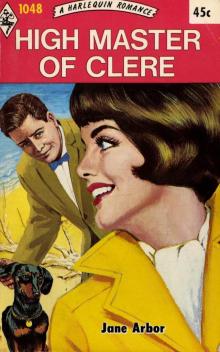 High Master of Clere
High Master of Clere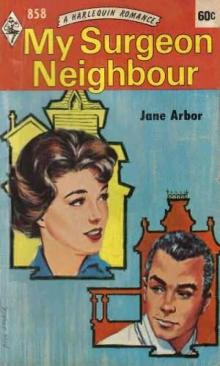 My Surgeon Neighbour
My Surgeon Neighbour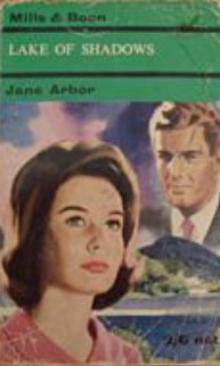 Lake of Shadows
Lake of Shadows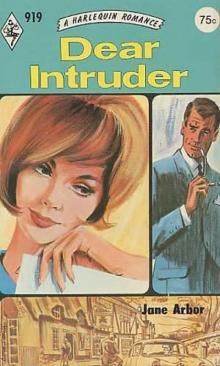 Dear Intruder
Dear Intruder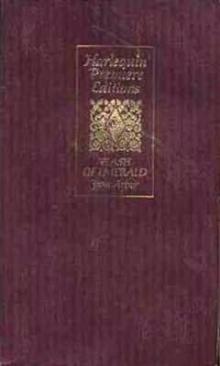 Flash of Emerald
Flash of Emerald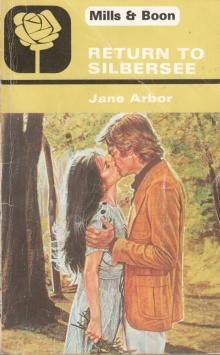 Return to Silbersee
Return to Silbersee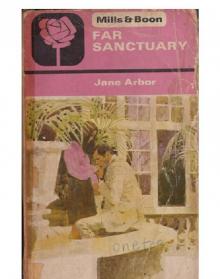 Far Sanctuary
Far Sanctuary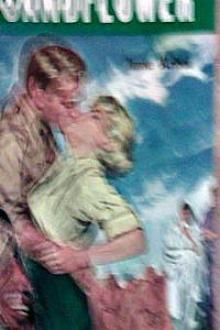 Sandflower
Sandflower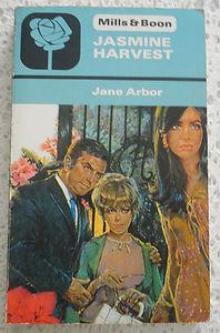 Jasmine Harvest
Jasmine Harvest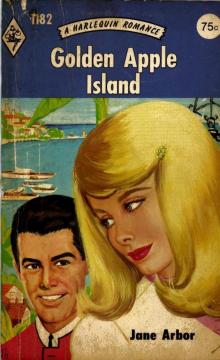 Golden Apple Island
Golden Apple Island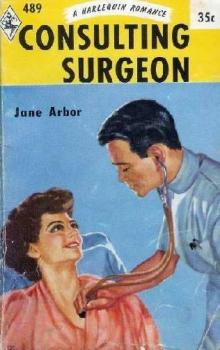 Consulting Surgeon
Consulting Surgeon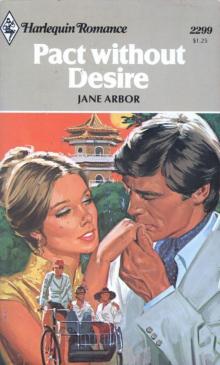 Pact without desire
Pact without desire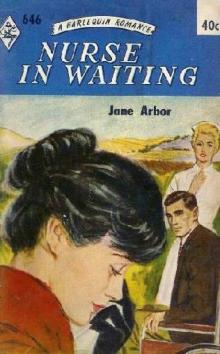 Nurse in Waiting
Nurse in Waiting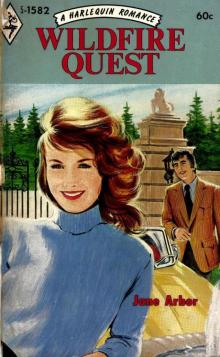 Wildfire Quest
Wildfire Quest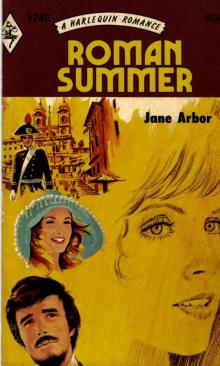 Roman Summer
Roman Summer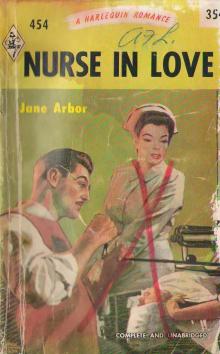 Nurse in Love
Nurse in Love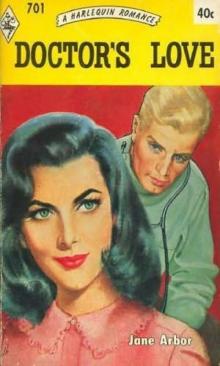 Doctor's Love
Doctor's Love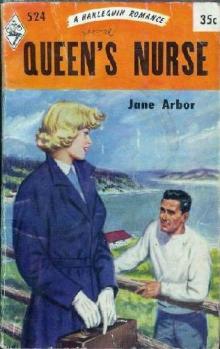 Queen's Nurse
Queen's Nurse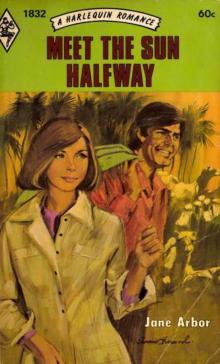 Meet the Sun Halfway
Meet the Sun Halfway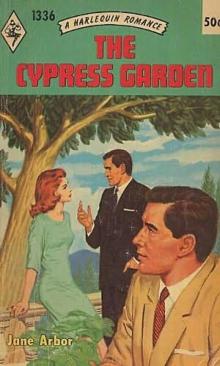 The Cypress Garden
The Cypress Garden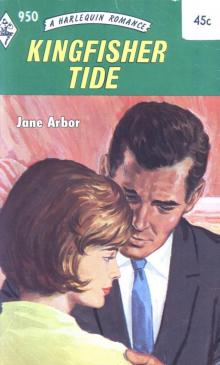 Kingfisher Tide
Kingfisher Tide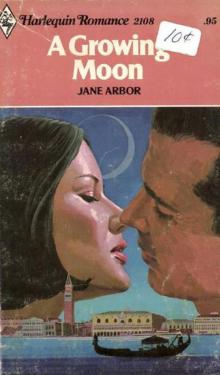 A Growing Moon
A Growing Moon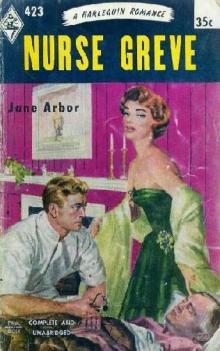 Nurse Greve
Nurse Greve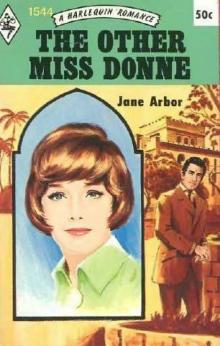 The Other Miss Donne
The Other Miss Donne